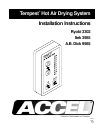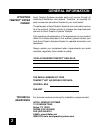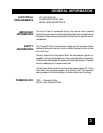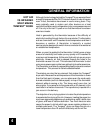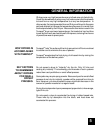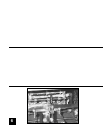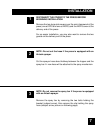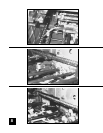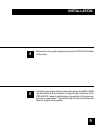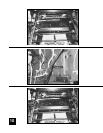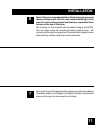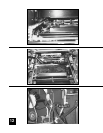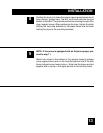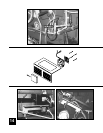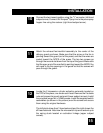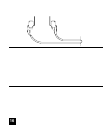
GENERAL INFORMATION
5
HOW DRYING IS
ACCOMPLISHED
WITH TEMPEST
®
KEY FACTORS
TO REMEMBER
ABOUT DRYERS
FOR SMALL
OFFSET
PRESSES.
IR dryers use very high temperatures and a fixed amount of electricity.
One of the drawbacks of using a very hot heat source is that heat wants
to travel from a very high temperature to a very low temperature. In
other words, the heat generated from an IR dryer will travel to the press
wall and attempt to increase its temperature because it is cooler than
the heat produced by the IR dryer. Because the thermistors used in the
Tempest
®
dryer use lower temperatures, the heated air has had time
to cool by the time it reaches the wall of the press, reducing the chance
of premature wear to press parts.
Tempest
®
"sets" the surface of the ink to prevent set-off from one sheet
to another and to minimize the use of powder.
Tempest
®
accelerates the final drying of oil based inks by raising the
temperature of the delivery stack.
Do not expect a dryer to "instantly" dry the ink. Only UV inks and
coating dry instantly. The technology and hazards of such systems
make them cost prohibitive on small offset presses.
Some jobs may require spray powder. Because dryers for small offset
presses do not dry ink instantly, powder will be required from time to
time. However, you should expect to see a significant decrease in the
amount of powder needed on a regular basis.
Drying time is dependent upon press speed, paper stock, ink coverage,
type of ink, etc.
Do not expect a dryer to accelerate the drying of rubber based inks.
These inks dry by absorption into the stock, and heat does not
accelerate this process.



